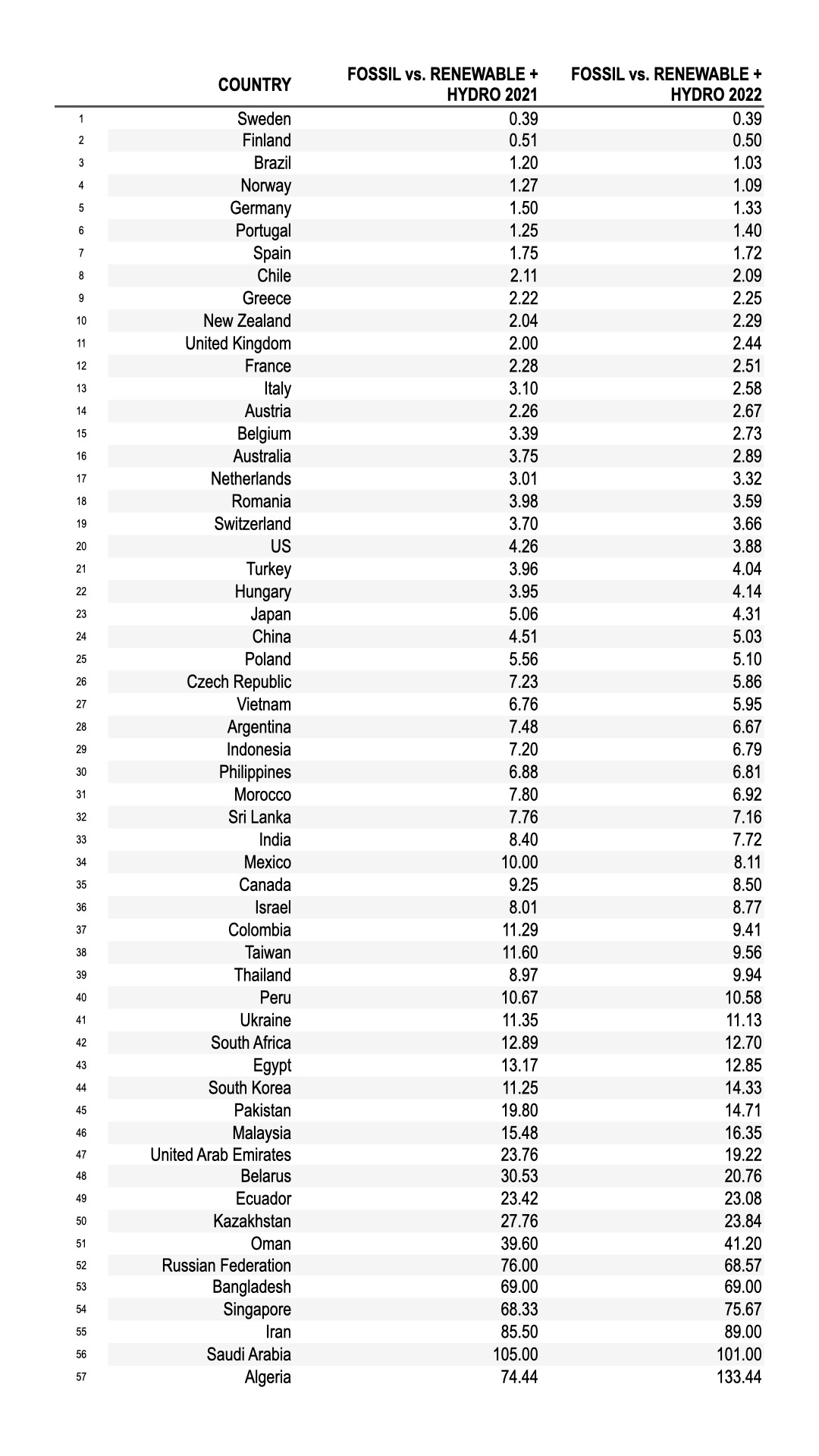How a different ranking looks
Proportions as an alternative measure to absolute figures
As mentioned here, I will take the time to analyze the current state of affairs regarding energy consumption - where it comes from, how it is consumed, and in what quantities.
This is the first step in understanding where we are and where we are headed. One of the facts that still impresses me is how vigorously we talk about renewable energy sources as if they are ubiquitous when, in reality, over 70% of the primary energy we consume globally comes from fossil fuels.
Setting this aside, I wanted to obtain a different kind of reference - one that would allow us to understand which countries, despite having energy derived from fossil fuels, as I mentioned before, have been able to shift towards alternative sources.
The mathematical exercise is as follows: add up the energy consumed from oil, natural gas, and coal and divide it by the total amount of renewable and hydroelectric energy consumed.
This is:
(OIL + GAS + COAL):(RENEWABLES + HYDRO) = COEFFICIENT
The values obtained are:
Notably, the primary driver for the shift in the energy paradigm is carbon emissions, which are not accounted for in this table. The table doesn't distinguish between countries that pollute more than others. However, countries with lower coefficient values are assumed to have an easier time substituting fossil fuels in their economy, at least initially.
What does this table tell us? It provides an alternative view of countries that are not typically at the center of the climate discussion. The top positions aren't major producers of CO2 (only Germany, which is ranked 6th globally). Nevertheless, these countries are progressing towards values that bring them closer to climate neutrality.
It's worth noting that some within the environmentalist movement view hydroelectric energy as counterproductive as fossil fuels due to the negative impact it can have on river systems and their ecosystems.
Going one step further, when we look at the differences in coefficients between the two years, we can see that most countries have improved their relationship (meaning it has decreased). This can be attributed to the rise in fuel prices caused by the Ukrainian war, which disrupted markets and forced many to optimize their fuel use.



